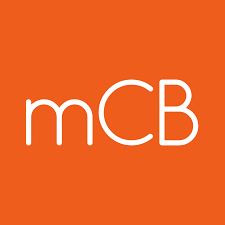
Post-Death Planning for Canadian Seniors: Ensuring Peace of Mind
A Guide to Handling Final Arrangements – Part 1
- Document Organization: Gather essential documents (Will, financial records, insurance) in one accessible location and create a comprehensive estate plan with legal assistance
- Financial Planning: Assess end-of-life expenses, explore government benefits (CPP Death Benefit, OAS), and communicate openly with family about plans and document locations
- Prepayment Benefits: Consider prepaying funeral arrangements to lock in current prices, reduce family burden, and work with reputable providers for personalized memorial services
Reading Time – 7 minutes
As we navigate through life’s journey, it’s essential to plan ahead for our eventual passing. While the topic may seem daunting, thorough post-death planning can provide immense peace of mind, not only for ourselves but also for our loved ones. By organizing our affairs and documenting our preferences, we can alleviate the burden on our families during a time of grief and ensure that our final wishes are honored.
Organizing Important Documents
The first step in post-death planning is to gather and organize all essential documents in a way that will enable the executor of your estate to find everything he or she needs all in one place . This includes documents such as your Last Will and Testament, financial documents such as yourbank statements, investment and retirement accounts, and insurance policies. Keeping these documents organized and accessible will streamline the estate administration process.
Estate Planning
Creating a comprehensive estate plan is a vital aspect of post-death planning. This includes drafting a legally binding Will, which outlines how you want your assets to be distributed and names an executor to manage your estate. Consulting with a qualified legal professional can ensure that your Will adheres to the laws of your province or territory.
Trusts, such as living trusts or testamentary trusts, can also be valuable tools for managing your assets and minimizing tax implications. Furthermore, regularly reviewing and updating your beneficiary designations on accounts and insurance policies is essential to ensure they align with your current wishes.
Financial Planning
Assessing your assets and liabilities is crucial in financial planning for end-of-life expenses. This includes estimating funeral and burial costs, as well as potential medical expenses. Understanding the tax implications, such as estate and inheritance taxes, can help you plan accordingly.
Communicating with Family
Open communication with your family is vital in post-death planning. Discussing your plans openly and naming your executor can ensure a smooth transition during a difficult time. Sharing the location of important documents with trusted family members is also crucial, as it will allow them to access the necessary information when needed.
Digital Legacy
In today’s digital age, managing your online accounts and digital assets is an integral part of post-death planning. Creating a comprehensive list of your social media, email, and other online accounts, along with instructions for managing them, can help your family navigate your digital legacy. Additionally, utilizing online tools for digital estate planning can streamline the process.
Reviewing and Updating Plans
Your post-death plans should be reviewed and updated regularly to reflect any changes in your circumstances or preferences. Major life events, such as marriage, divorce, or the birth of a child, may also necessitate updates to your plans.
Planning and Prepaying for Final Arrangements
Recording your wishes and preferences for funeral, cremation, or burial services is an essential part of post-death planning. Considering your family’s wishes and determining a final resting place are also important considerations.
Whether your final arrangements include a traditional burial or cremation, a permanent place of remembrance can bring a tremendous sense of peace and comfort to family and friends. A final resting place—whether in a cemetery, mausoleum, or cremation garden—offers loved ones the opportunity for visitation and reflection. Your local funeral providers can show you an array of beautiful permanent remembrance options including benches, gated estates, and even custom-built memorials.
Researching the costs associated with different types of services and prepaying for your arrangements can alleviate financial burdens on your family and lock in current prices.
It’s important to note that while insurance can provide financial assistance, it may not be sufficient to cover all end-of-life expenses. Exploring government programs such as the Canada Pension Plan (CPP) Death Benefit, Old Age Security (OAS), and provincial or territorial assistance programs can help alleviate the financial burden.
Seeking guidance from a licensed professional, such as a financial advisor, estate lawyer, or funeral director, can ensure that every detail of your post-death plan is carefully considered and executed according to your wishes.
Personalized Memorial Services
A memorial service stands out as a unique event, embodying the essence of a person’s life in a singular tribute. Whether you prefer a simple gathering or an elaborate ceremony, the most memorable services are thoughtfully planned and infused with personal touches that reflect the individual’s passions and experiences.
When planning your memorial service, consider what has been most significant in your life. Do you cherish travel, enjoy sports, love dancing, or have cherished family traditions? Your final celebration should reflect these aspects, making it a true homage to who you are. There are numerous ways to personalize your service, including selecting meaningful music, readings, mementos, food, and flowers.
Working with a reputable funeral provider can ensure that every detail is handled with care and respect, allowing you to create a personalized and heartfelt tribute. They can help you design a service that honors your unique story and leaves a lasting impression on your loved ones.
Why Prepaying is an excellent option
Average funeral prices have more than doubled over the past 28 years. In 2019, the median prices in North America were $5,150 for a cremation with viewing and memorial service, and $7,640 for a traditional funeral with viewing and burial.
Courtesy: https://www.dignitymemorial.com/
Prearranging—or paying for your service in advance—can help take care of the actual expenses ahead of time. Prepaying offers two main benefits:
- It provides relief for your family by eliminating the burden of paying at the time of need.
- It offers protection from inflation by allowing you to lock in today’s prices.
When prepaying, keep these important points in mind:
- Choose a licensed funeral director with a good reputation in the community.
- Fund your plan through an established and trustworthy company.
- Ensure your plan is flexible enough to allow alterations.
All funeral homes must provide a clear, itemized list of prices for merchandise and services. In addition to items like caskets, urns, flowers, and music, be aware of standard fees such as the basic service fee, transportation, embalming, facility and staff use, and burial vaults or cremation containers. When planning, make sure you are aware of all costs.
The provider you choose should listen, address your concerns, work within your budget, and help plan every detail of a memorable tribute. Look for providers offering various packages to select arrangements at the right price and best value. By working with a reputable provider and prepaying, you can have peace of mind knowing your funds are safe and secure.
Post-death planning may seem like a daunting task. But taking the time to organize your affairs and document your preferences can provide immense peace of mind for you and your loved ones. Start the process now to ensure that your final wishes are honored and your family is not burdened with making difficult decisions during an already challenging time. Embrace the opportunity to plan ahead. Approach this journey with courage and compassion, knowing that your efforts will ultimately provide solace and clarity for your loved ones.
Feature Image by www.freepik.com
👵 Are you noticing signs that your loved one may need extra support at home?
Discover the top 10 signs it’s time for home care. Click here to learn more!
Other articles you may be interested in:

Comments 1
Pingback: Navigating After-Death Plan Execution - myCareBase In-Home Senior Care